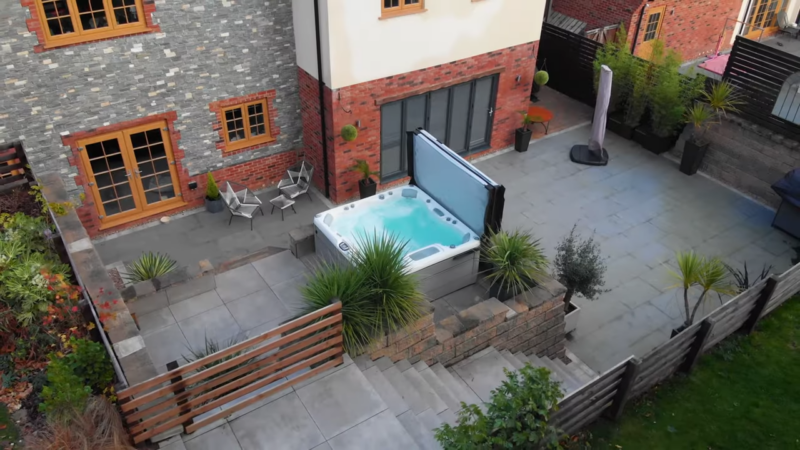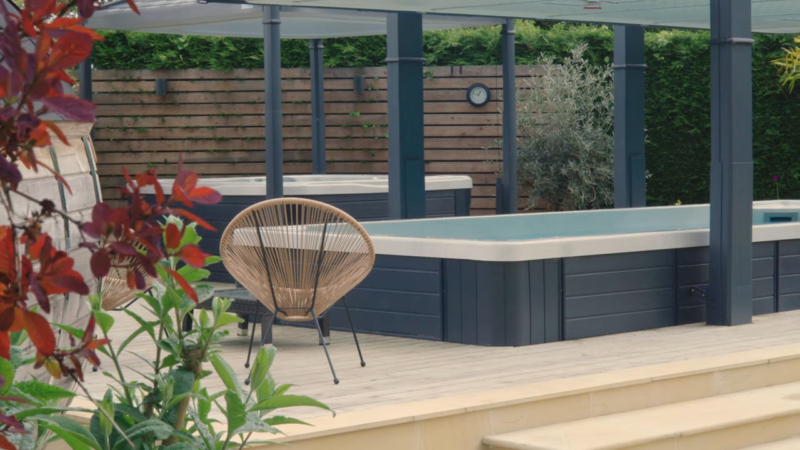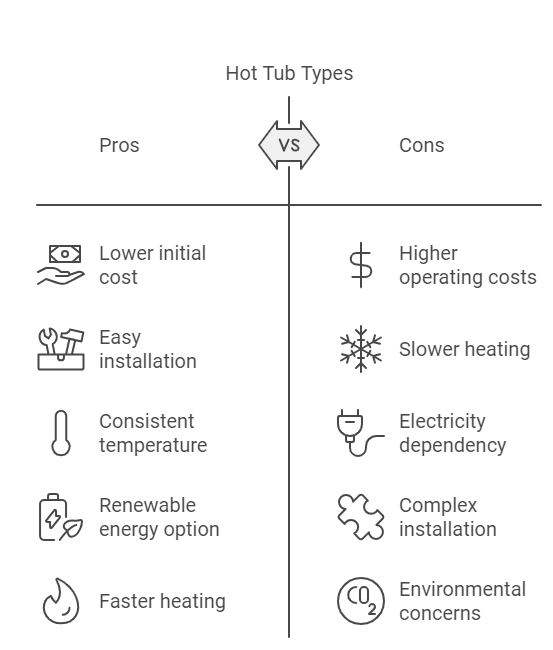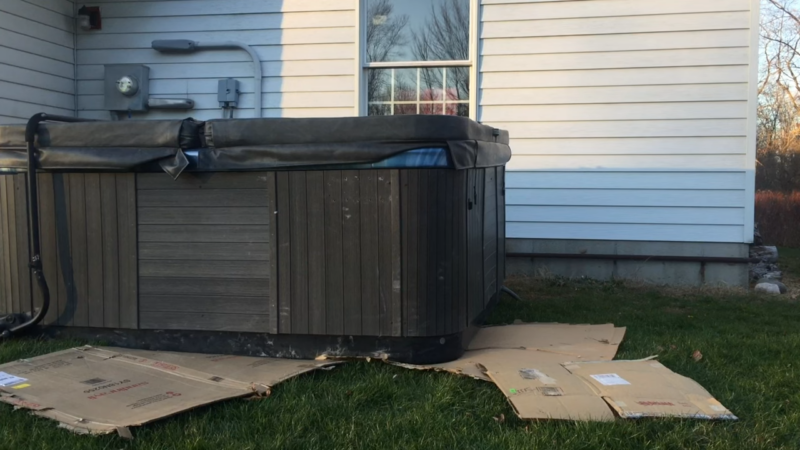
Share Post:
The heating system is a critical part of any hot tub. It affects not just the cost of running the tub, but also how quickly it heats up, how much maintenance it needs, and even the overall experience. So, let’s compare electric and natural gas options in terms of costs, efficiency, convenience, and environmental impact.
What are the Costs?
Initial Installation
Electric hot tubs generally come with a lower upfront cost. Most models are plug-and-play, meaning you can set them up with a standard 240-volt outlet and you’re good to go. Installation is relatively easy, and you won’t need to hire a specialized contractor.
On the flip side, natural gas hot tubs require a bit more groundwork. You’ll need a gas line installed, which often involves a professional. This can bump up your initial expenses quite a bit, depending on the complexity of the setup and local regulations.
Operational Costs
Here’s where things get interesting. Natural gas hot tubs usually have lower operating costs compared to electric ones. Gas tends to be cheaper than electricity, especially if you plan to use your hot tub frequently or for extended periods.
With electric hot tubs, your energy bills could start climbing, particularly during colder months when you’re trying to maintain a consistent temperature.
Maintenance Costs
Maintenance is another thing to consider. Electric hot tubs tend to be simpler to maintain because they have fewer components. Natural gas hot tubs, however, might require regular servicing to keep the gas lines and burners in tip-top shape. So, factor in potential maintenance expenses when making your choice.
Heating Efficiency
Let’s talk about speed. Natural gas hot tubs heat up much faster than electric ones. If you’re the kind of person who decides you want a soak and then wants it now, gas is the way to go.
Temperature Consistency
Both types of hot tubs can maintain temperature well once they’re heated. However, electric models are typically better at keeping a steady temperature over long periods. Natural gas heaters may require more frequent adjustments, which isn’t a huge deal but something to be aware of.
How Convenient Are These Tubs?
Installation and Setup
Electric hot tubs are the champions of convenience. Most models are easy to install, don’t require a dedicated gas line, and can be moved around with relative ease. They’re perfect if you’re renting or if you think you might want to move your hot tub at some point.
Natural gas hot tubs are a bit more complicated. The installation is more permanent, involving a gas line and possibly a permit. This isn’t a dealbreaker, but it’s worth considering if you’re not planning on staying in your current home long-term.
Usage and Flexibility
If you want flexibility, electric models give you that freedom. They’re portable, can be used both indoors and outdoors, and don’t need to be hooked up to anything other than a power source. Natural gas models are more stationary due to their connection to the gas line.
Environmental Impact
Electric hot tubs can be eco-friendly, especially if you have access to renewable energy sources. If your home is powered by solar or wind energy, your hot tub will have a much lower carbon footprint. Plus, you can always upgrade your heater to a more efficient model down the line.
Natural gas hot tubs, while efficient, do emit greenhouse gases. If you’re conscious about your environmental impact, this might be a sticking point. There’s also the consideration of gas leaks, which, while rare, can be harmful to the environment and a safety hazard.
Safety Considerations
Electric hot tubs are generally safe, but as with any electrical appliance near water, there are risks. Proper grounding and installation are key to preventing electrical accidents. It’s usually a good idea to have a professional do the installation to ensure everything is up to code.
Natural gas hot tubs come with their own set of safety concerns. Gas leaks are rare but possible, and they pose serious risks. Installing a carbon monoxide detector near your hot tub area is essential. Also, routine checks on the gas lines and burners can prevent potential hazards.
Which One Fits Your Lifestyle?
When I was making my decision, I had to think about my own habits and preferences. I’m a pretty spontaneous person, so the idea of waiting hours for my hot tub to heat up was a turn-off. That made natural gas appealing. But I also live in a city where electricity is relatively cheap and gas is pricey, so cost became a factor.
Questions to ask yourself:
- How often do I plan to use the hot tub?
- Is the initial cost or the operational cost more important to me?
- Do I have access to both electricity and natural gas?
- Am I concerned about my environmental impact?
- How significant is installation and setup flexibility?
Pros and Cons at a Glance
My Personal Recommendation
If you’re someone who values flexibility, lower upfront costs, and possibly a greener energy option, an electric hot tub is probably your best bet. They’re reliable, easy to use, and perfect for most households. However, if you’re planning to use your hot tub regularly and don’t want to wait forever for it to heat up, a natural gas model could be the way to go.
Just be prepared for the higher installation costs and potential environmental impact. Ultimately, the best choice depends on your personal circumstances, lifestyle, and priorities. Both electric and natural gas hot tubs have their perks and pitfalls, but one of them will likely suit your needs better than the other.
Related Posts:












